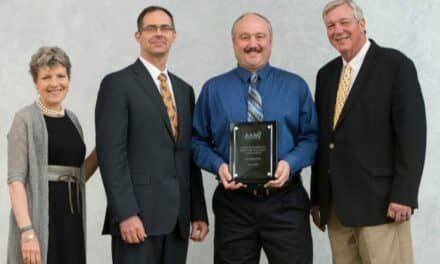
Pratyusha Mattegunta
Most articles in 24×7 are written from the perspective of an industry leader or a very experienced professional. Since I am new to the clinical engineering field, I would like to give a different perspective and share what I have learned on my journey into this intense, technology-driven field of great potential. I feel like I am one of the luckiest people on earth who has realized her dream of landing a career in clinical engineering!
I did my undergrad in biomedical engineering in India and I got an opportunity to do an internship at CARE Hospitals, one of the leading and the fourth largest health care provider in India. This internship opened my vision and horizons, and prodded me to think in a new, innovative manner.
I searched for a consolidated program that would provide an in-depth, rigorous, clinical experience that would match the engineering expertise gained in the classroom. I got into the clinical engineering internship program (CEIP) at the University of Connecticut (UConn), with a much cherished internship at UMass Memorial Health Care, which works on multimillion-dollar projects. The internship program brought me under the tutelage of the renowned Frank R. Painter, MS, CCE; and Terri Crofts, ME, BME, director of clinical engineering for UMass, who says, “By incorporating entry-level clinical engineering students into our department, we all benefit.”
It introduced me to the ideas of industry experts through various platforms like AAMI and ACCE. Terri has been a great adviser and was willing to share her knowledge; supporting, tutoring, and giving me valuable feedback on my performance. She is inspirational to all the women who want to get into this field.
One of the interesting facets of CEIP is that it allows the new clinical engineering interns to do clinical rotations in various departments of the hospital, such as the OR, ICUs, etc. This provides a wonderful opportunity to get a thorough understanding of the physician and patient workflow in each department in the hospital and study the patient-technology-physician interface.
This program gave me a wonderful chance to gain technical expertise and be trained as a manager at the same time, dealing with day-to-day management issues—financial or budgetary management, service contract management, data processing systems for managing the medical equipment, and coordination of service agreements and in-house operations—bringing me closer to the business side of project management.
One day, I would work on patient safety and fall prevention, and the next I would work on innovative LEAN projects. The projects have varied vastly from medical device integration into the hospital EMR, medical equipment planning for dialysis rooms and neonatal ICUs, to automating temperature monitoring systems for tissue/bone-containing refrigerators and freezers. Working with professionals at UMass has definitely helped me learn the intricacies of managing the hospital equipment, while taking up major projects related to technology assessment, technology evaluation, regulatory compliance, medical equipment replacement/upgrade, risk management/safety, recalls/alerts management, incident investigations, RTLS, and others. Due to constant interaction with outside agencies, such as vendors or consultants, it helped me get acquainted with vendor management. The vast array of projects and the practical learning experience has definitely been much above my expectations of an intern’s job description, which is a huge plus.
The intern assists the clinical engineering supervisors or sometimes leads projects in the day-to-day activities of the department. Through education and training, an intern is prepared to meet challenges and solve problems in a technology-driven medical environment. “The internship program introduces fresh perspectives regarding our methodologies, creativity, and ideas, and challenges every aspect of our program by ensuring that we continually are improving and evolving to meet the demands of the health care environment,” Crofts says. “All of this directly reaches our patients by ensuring the provision of the most advanced and safest patient care for the best outcomes possible.”
The clinical engineering internships serve as a foundation for and as a harbinger of innovative project management in the field of clinical engineering, and I acknowledge the challenging task of taking the time out to nurture newbies like me. Along with the evident benefits of the internship, like development of strong teamwork skills balanced with the exercise of individual responsibility and the chance to develop industry-specific abilities, internships also increase the likelihood of building professional networking contacts and mentoring relationships. Once they start working on the internship, it is up to the student to make the most of the opportunity. Regular feedback and constructive criticism on projects and tasks help improve on work techniques. The best way to go about it is to treat the internship as if it were a full-time, permanent position. Although interns are there to learn, they are also there to contribute to the organization.
Pratyusha Mattegunta has been working as a clinical engineering intern at UMass Memorial Medical Center since August 2009. She is working on her Master’s in Biomedical/Clinical Engineering in the CEIP at the University of Connecticut. For more information, contact .
What’s on Your Mind?Got a gripe? A recommendation? Does someone or something deserve praise? Share your opinions and insights with your peers. Soapbox columns should be 850 to 900 words in length and can be e-mailed to . |





